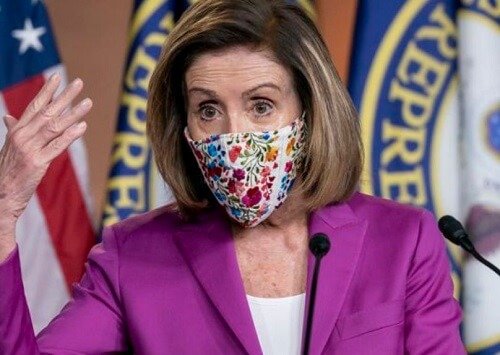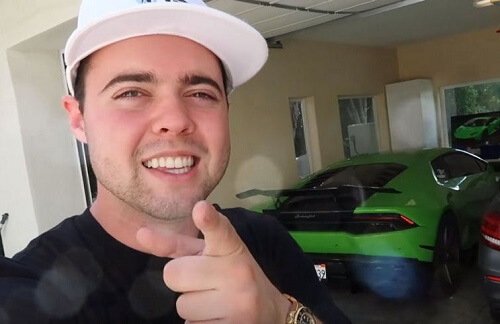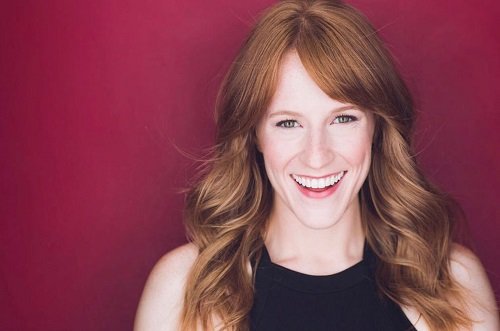In this article, here is the full details of Emmanuel Macron about wiki, biography, date of birth, birthplace, zodiac sign, nationality, hometown, age, height, weight, father, mother, family, girlfriend, wife, relationship status, children, profession, education, career, net worth, facts, Wikipedia, and many more.

Emmanuel Macron, born on December 21, 1977, in Amiens, France, is the current President of France and one of the most influential leaders in European politics. A former investment banker, government official, and economy minister, Macron became the youngest president in French history when he was elected at the age of 39 in 2017. Known for his centrist political stance, pro-European Union policies, and reform-oriented leadership, Macron has had a significant impact on both domestic and international politics since taking office.
Early Life and Education
Emmanuel Jean-Michel Frédéric Macron was born to a family of medical professionals in Amiens, northern France. His father, Jean-Michel Macron, was a professor of neurology, and his mother, Françoise Noguès, was a physician. Macron was raised in an educated, middle-class environment that encouraged intellectual curiosity. He showed an early interest in literature, philosophy, and politics, which later became defining elements of his personality.
Macron attended the prestigious Lycée la Providence in Amiens, where he first developed a strong affinity for literature and the humanities. It was during his time here that he met his future wife, Brigitte Trogneux, who was his drama teacher and 24 years his senior. Their relationship sparked media attention later in his life, but it has remained a key part of his personal story.
After completing his secondary education, Macron moved to Paris, where he continued his studies at Lycée Henri-IV, one of France’s top preparatory schools. He later studied philosophy at the University of Paris Nanterre and earned a master’s degree in public affairs from the Paris Institute of Political Studies (Sciences Po). Macron capped off his academic journey by attending the École Nationale d’Administration (ENA), a prestigious institution known for producing many of France’s top civil servants and political leaders.
Early Career: Investment Banking and Public Service
Following his graduation from ENA in 2004, Macron began his career in public service as an inspector of finances at the French Ministry of Economy. He quickly gained a reputation for his intellect and financial acumen. However, in 2008, Macron left the civil service to join the private sector, taking a position as an investment banker at Rothschild & Cie. At Rothschild, he worked on high-profile deals, most notably advising Nestlé on its acquisition of Pfizer’s baby food division. His success in the banking world made him wealthy and gave him valuable connections in France’s business and political elite.
Entry into Politics: Hollande’s Economy Minister
Emmanuel Macron’s transition into politics occurred in 2012 when he was appointed deputy secretary-general of the Elysée under President François Hollande. In this role, Macron became one of Hollande’s closest advisers, particularly on economic policy. His pro-business views and reformist ideas often put him at odds with the more traditional left-wing members of Hollande’s Socialist Party.
In 2014, Macron was appointed Minister of Economy, Industry, and Digital Affairs, a role in which he pushed forward a series of pro-market reforms aimed at liberalizing the French economy. These included labor market reforms, efforts to reduce bureaucracy, and measures to boost competitiveness in sectors such as technology and transportation. His reforms, often dubbed the Macron Law, were controversial, with both praise and opposition from various sides of the political spectrum. His push for deregulation and economic reform cemented his reputation as a centrist with a vision of modernizing France’s economy.
Founding La République En Marche! and the 2017 Presidential Election
In 2016, Macron resigned from his ministerial post and announced the formation of a new political movement, La République En Marche! (LREM), a centrist party that aimed to bridge the divide between the traditional left and right. His decision to start a new political movement was a bold and unprecedented move in French politics, where established parties traditionally dominated.
Macron’s message of political renewal, economic reform, and a pro-European vision resonated with many French voters who were frustrated with the traditional political elite. He positioned himself as a reformer, advocating for a forward-looking, inclusive France that could compete on the global stage. Macron campaigned on promises of reducing unemployment, improving education, promoting renewable energy, and strengthening European integration.
In the 2017 presidential election, Macron advanced to the second round, defeating far-right candidate Marine Le Pen with 66% of the vote. His victory marked a seismic shift in French politics, as he became the first president in the Fifth Republic who was not from one of the major traditional parties. At 39, he also became the youngest president in French history, symbolizing a new generation of leadership.
Presidency: Domestic Reforms and Challenges
Emmanuel Macron’s presidency has been marked by a strong push for economic reforms and modernization. One of his key early initiatives was the reform of labor laws, aimed at making it easier for companies to hire and fire workers, as well as giving more flexibility in negotiations between employers and employees. His government also introduced reforms in taxation, reducing the wealth tax and corporate taxes to attract investment.
However, these reforms sparked significant opposition from labor unions and sparked the Yellow Vest protests (Gilets Jaunes) in late 2018. The protests, which were initially about fuel taxes, grew into a broader movement against economic inequality and dissatisfaction with Macron’s policies, which were seen by critics as favoring the wealthy.
Despite these domestic challenges, Macron continued to push forward with his reform agenda, including changes to the pension system, efforts to fight climate change, and improvements in education. He also faced the challenge of navigating France through the COVID-19 pandemic, implementing strict lockdown measures, economic stimulus packages, and vaccination campaigns.
European and Global Leadership
On the international stage, Emmanuel Macron has emerged as one of Europe’s most influential leaders. He has been a strong advocate for the European Union, pushing for closer integration and greater EU defense cooperation. Macron has often positioned himself as a counterweight to nationalist and populist movements within Europe, seeking to strengthen the EU’s role in global affairs, especially in areas like climate change, technology, and security.
Macron’s diplomatic style has often been proactive and assertive. He has taken the lead in addressing global issues such as climate change, notably playing a key role in the Paris Climate Agreement. Macron has also been a vocal advocate for multilateralism and international cooperation, often positioning himself as a mediator in conflicts involving countries like Russia and Iran.
Re-election in 2022 and Ongoing Leadership
In 2022, Macron was re-elected as President of France, once again defeating Marine Le Pen, though by a narrower margin than in 2017. His second term has been focused on continuing his reformist agenda, particularly around environmental policies, pensions, and social reforms. Macron’s leadership has been defined by both his bold visions for France and Europe and the deep divisions within French society over the direction of his policies.
Personal Life
Emmanuel Macron’s personal life has also been the subject of public interest, particularly his marriage to Brigitte Trogneux, who is 24 years his senior. The two met when Macron was a teenager, and their relationship has been a topic of fascination and, at times, controversy in the media. They married in 2007, and Brigitte has been a visible and influential figure in Macron’s life and presidency.
Legacy and Impact
Emmanuel Macron’s political career has been characterized by his centrist, reformist approach, his pro-European stance, and his determination to modernize France. As one of the most prominent global leaders of his generation, Macron has played a critical role in shaping France’s domestic policies and its place within the broader European and international community.
His legacy is still unfolding, but Macron’s tenure as president has already marked a significant moment in French politics, moving away from traditional party structures and embracing a forward-looking, inclusive vision for the future of France. Whether through economic reforms, European integration, or global diplomacy, Macron’s influence will continue to shape the course of France and the world for years to come.
Stay connected with the wikimavani to know more about other trending personalities the wiki, biography, date of birth, birthplace, zodiac sign, nationality, hometown, age, height, weight, father, mother, family, boyfriend, husband, girlfriend, wife, relationship status, children, profession, education, career, net worth, facts, Wikipedia, and many more.













